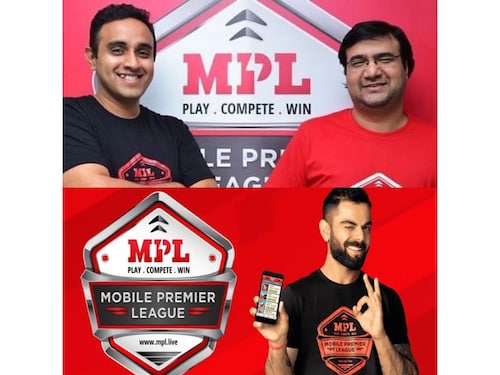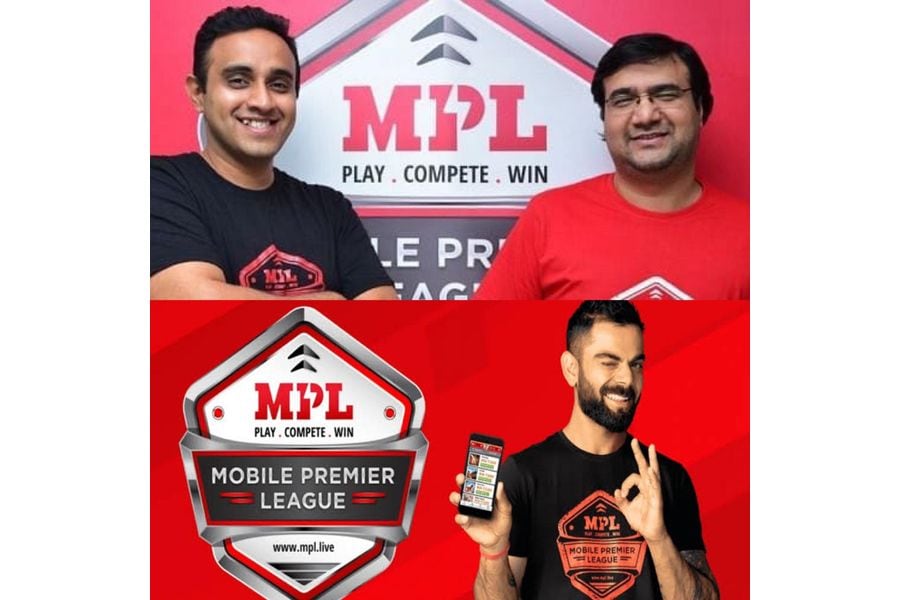eSports and Digital Gaming: A quest for young Indians to dominate the global sta
Indian firms like Mobile Premier League (MPL) have been at the forefront of organizing such nationwide tournaments


In his ‘Mann Ki Baat’ address to the nation on August 30, Prime Minister Narendra Modi devoted a lot of time on India becoming self-reliant in the areas of manufacturing toys. He also touched upon indigenous gaming applications as an area where Indian firms can be make it big.
This is a big moment for the online gaming industry in India. In India, the industry started developing at the turn of the century, but the real popularity has come in only in the last five years with cheap mobile data and smartphone penetration being the prime driver of the industry’s growth.
From less than ten firms in 2016, India today has more than 140 companies in the area of digital gaming and eSports. The number of users has also gone up from 2 million in 2016 to more than 90 million now. In fact a third of these users play on multiple platforms. The online gaming segment grew 40% in 2019 to reach INR65 billion and is expected to reach INR187 billion by 2022 at a CAGR of 43% states a FICCI- EY report on media and entertainment industry.
eSports competition and games were identified as major areas of growth for the industry and a new trend to watch out for in the same . Indian firms like Mobile Premier League (MPL) have been at the forefront of organizing such nationwide tournaments. VS Rathnavel, a young chess prodigy who earned his Grand Master norm at the tender age of ten, was one of the beneficiaries of one such MPL tournament. Struggling to raise sponsorship money, he won 253 chess games in an online tournament in twelve hours and won five lakhs in prize money. He was later awarded an eSports scholarship by MPL to allow him to participate in international tournaments and get adequate coaching.
User generated gaming is another big area. Several developers are creating their own games and using platforms like PaytmFirstGames, Winzo and MPL to host these games. These platforms provide all the utility functions of bringing in users, deal with financial transactions and connects gamers playing against each other. The developers get a share of the spoils, thus monetizing their coding talent. This can be a great model for unearthing India’s technology talent in the gaming space.
Ashish Daga of Psypher Interactive has worked with MPL since the platform’s inception. He says – “For Indie studios like us, it’s overwhelming to such trust and support from the MPL team. For someone like us, we know how to make amazing games but to market that’s a different ball game altogether that we need to master but in the meantime, platforms, such as MPL help us grow and understand the mass audience.”
Sani Trivedei of Artoon Solutions echoes Daga’s views – “As a game developer you will not be able to spend a lot of money in marketing or IP. It reduces efforts of game developers specially they don"t need to worry about app marketing.”
Global technology giants like Apple, Google, Microsoft and Nvidia have all created their rich-graphics based cloud gaming experiences, which provide users real life experience of competing against other players. Sooner than later, this trend will also touch the Indian market. In India, there are two specific trends to watch out for – gaming content on mobile phone over PC as well as the use of gamification for purposes like education, promoting social welfare and social causes like healthcare and financial inclusion.
In India, gamers are getting more active. As per the FICCI – EY report, 76% of the users played one to two times a day regularly, spending 28 minutes on an average per day on gaming. 46% of the users had played multi-user games while 35% had played fantasy sports. Action and strategy (61%), casual games (47%), puzzles (44%) and racing (41%) remain the most popular genre.
An interesting trend in India is the possibility of monetization. 15% of the users were willing to pay to play games in 2019, up from 10% in 2018. Similarly 74% of the users were willing to watch ads in lieu of paying up from 70% in the previous year. This increases the options for the game developers as well as the platforms to adopt different monetization strategies for different types of individuals. This decision can well be made using data of the gamers or developers available on the platform itself. Saswat Mishra of Smashhead Studios talks about his experience – “Releasing games for the Indian market is a difficult task as the return of investment on games is quite unpredictable but with MPL"s revenue model its a win-win-win for the publisher, developer, and the user. The revenue generation is also faster with people making more transactions than before.”
Gaming platforms who use this data backed approach to engage their users online as well as in the offline world are likely to succeed in the times to comes. Various reports have estimated a market potential of $1-billion by 2021 and $4-billion by 2025 in this space. There is ample room for multiple platforms to grow and participate in these spoils. Platforms which provide a professional experience and Indianize their approach and content are likely to outsmart others over a period of time. Take MPL for example, which launched Rogue Heist on its platform, India’s first indigenous shooter game. Developed by LifeLike Studios based out of Mumbai, the game is India’s answer to PubG, recently in the news for its Chinese antecedents and now banned by the Government of India.
Engaging gaming developers is a key part of this differentiation. Discovery of standalone gaming apps on App Store or Play Store is never easy. But working through a large gaming-specific platform like MPL can be quite rewarding for developers. This is likely to increase the number of Indian studios focusing on the skill, strategy and aesthetic part of their games, leaving the problem of scaling and discovery to the larger platforms.
Indian gaming firms have pulled in almost $450-million in funding in the last six years. This can be the new sunrise industry in the Aatmanirbhar Bharat, where best Indian brains come together as developers, visual designers and platforms to trigger the rise of Indian firms as global leader in fantasy and eSports.
Disclaimer: The views, suggestions and opinions expressed here are the sole responsibility of the experts. No Forbes India journalist was involved in the writing and production of this article.
First Published: Sep 03, 2020, 15:14
Subscribe Now